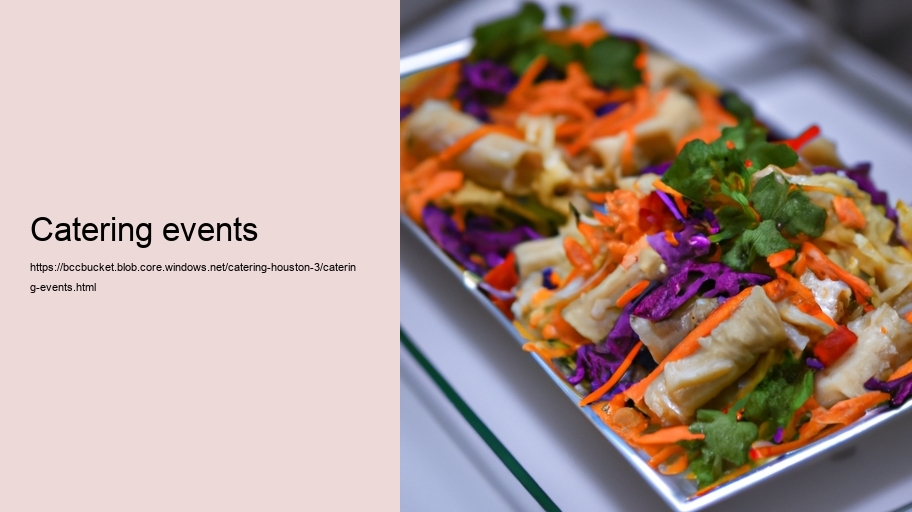Catering events represent a symphony of details, flavors, and experiences that come together to create memorable occasions. These gastronomic gatherings are not merely meals; they are crafted experiences designed to enhance the ambiance of any celebration, meeting, or special event. The term 'catering' itself conveys the idea of providing food and service at a remote location, be it an intimate dinner party at home, a grand wedding reception in a lavish ballroom, or an outdoor corporate retreat.
At the heart of catering events is the culinary expertise that brings forth innovative menus tailored to suit the occasion and clientele. Professional caterers are culinary chameleons who adapt their skills to various themes and dietary preferences while ensuring taste and presentation are never compromised. From hors d'oeuvres that tease the palate with bursts of flavor to multi-course dinners that showcase an array of textures and tastes, each dish is carefully curated to contribute to a cohesive dining experience.
Behind every successful catering event lies meticulous planning and execution. It begins with understanding the client's vision—the desired atmosphere, theme, guest profile, and overall objectives for the event. This initial consultation forms the blueprint for menu selection, equipment requirements, staffing needs, and layout design. Caterers often collaborate with event planners to ensure harmony between all elements—floral arrangements complement table settings; lighting enhances food presentation; music sets the tempo for service.
The flexibility inherent in catering services allows them to accommodate various scales—from small private gatherings where personalization is key to large-scale public functions where efficiency takes precedence without sacrificing quality or elegance. Each setting presents its unique challenges: timing dishes perfectly amidst speeches at a gala dinner or swiftly adapting menu items due to unforeseen weather changes during an outdoor barbecue.
A significant aspect of catering events is attention to detail. Every element counts: from selecting fresh ingredients that guarantee flavorful dishes to training staff members who can anticipate guests' needs with professionalism and poise. A well-orchestrated team ensures smooth transitions between courses while maintaining high standards of cleanliness and organization throughout the affair.
Moreover, caterers must navigate dietary restrictions with finesse—gluten-free breads must rise alongside their wheat-filled counterparts; vegan options need as much creativity as traditional entrees; nut allergies dictate careful kitchen protocols—all without drawing undue attention or making any guest feel excluded from the full experience.
Sustainability has also become integral in modern catering practices—a reflection of growing environmental consciousness among clients and consumers alike. This includes sourcing local produce whenever possible, minimizing waste through thoughtful portion control and recycling initiatives, as well as incorporating eco-friendly serviceware options over single-use plastics when practical.
In essence, catering goes beyond just feeding people—it means creating environments where food elevates social interactions. Whether it's bonding over barbecued ribs at a company picnic or savoring delicate pastries during afternoon tea service at a bridal shower—every moment is crafted by caterers who understand that they're not only serving meals but also nourishing relationships.
To conclude this essay on catering events: these occasions bring more than just sustenance—they deliver artistry on a plate within orchestrated habitats designed for engagement, pleasure, and celebration. When executed flawlessly by passionate professionals dedicated to their craft's smallest nuances—the result is nothing short of extraordinary gastronomical theatre enjoyed by all involved.
